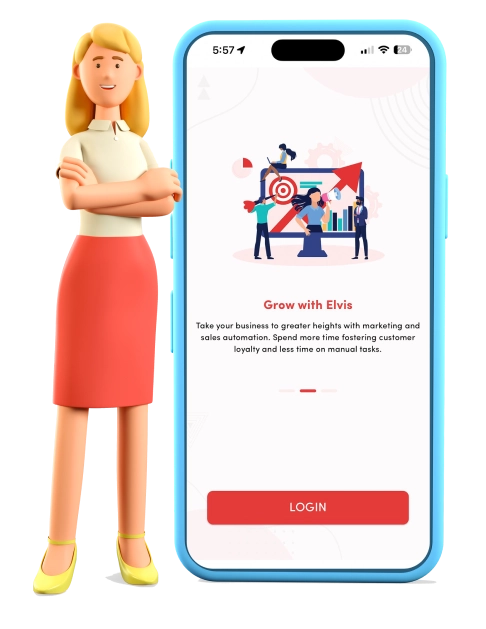Published
Views
Customer expectations are constantly evolving, demanding exceptional service and strong relationships. CRM systems have become essential tools for businesses to meet these challenges. Whether you're a small startup or a large corporation, understanding the benefits and drawbacks of CRM is crucial for making informed decisions.
Personalization: Tailor your interactions based on customer history and preferences.
Consistency: Ensure all team members have access to the same customer information, providing a consistent customer experience.
Retention: Increase customer satisfaction and loyalty through better service and engagement
Increased Sales and Revenue: CRM systems streamline the sales process from lead generation to closing deals. By tracking sales activities and customer interactions, businesses can effectively manage their sales pipeline and identify new opportunities.
Lead Management: Identify and prioritize leads, ensuring that sales teams focus on high-potential opportunities.
Sales Forecasting: Use historical data to predict future sales trends and make informed decisions.
Upselling and Cross-Selling: Recognize opportunities to offer additional products or services based on customer purchase history.
Enhanced Communication and Collaboration: CRM systems foster collaboration by centralizing customer information and enabling seamless information sharing across teams.
Unified Communication: A centralized repository of all customer interactions and notes ensures seamless handoffs between team members.
Task Management: Assign tasks, set reminders, and monitor progress within the CRM.
Internal Collaboration: Share customer insights and strategies across sales, marketing, and customer service teams.
Better Customer Data Management: CRM systems consolidate all customer data into a single, accessible location, eliminating the need for multiple data sources.
Data Centralization: Store all customer information in a single, easily accessible location.
Data Accuracy: Maintain accurate records and avoid duplicate entries.
Security: Implement robust data protection measures to safeguard sensitive customer information.
CRM systems offer powerful analytics that transform data into actionable insights. These insights drive strategic decision-making and operational improvements.
Customer Insights: Analyze customer behavior and preferences to tailor marketing and sales efforts.
Performance Metrics: Track key performance indicators (KPIs) to assess the effectiveness of your strategies.
Trend Analysis: Identify patterns and trends to anticipate future customer needs and market shifts.
Streamlined Marketing Efforts: CRM systems empower targeted marketing by segmenting customers and delivering personalized messages.
Audience Segmentation: Group customers based on various criteria (e.g., demographics, purchase history) for targeted marketing.
Campaign Management: Plan, execute, and monitor marketing campaigns from within the CRM.
ROI Tracking: Measure the success of your marketing efforts and adjust strategies accordingly.
High Initial Costs: Implementing a CRM system requires a significant financial investment. Costs include software licensing, hardware, customization, and employee training, especially for small businesses.
Software Costs: CRM software can be pricey, especially for comprehensive solutions.
Implementation Costs: Additional expenses for customization, integration, and setup.
Training Costs: Time and resources required to train staff on using the new system.
Complexity and Learning Curve: CRM systems can be complex and overwhelming, especially for non-technical users, due to their extensive feature set.
User Adoption: Ensuring that all team members are comfortable using the CRM can take time.
System Complexity: Advanced features may be underutilized if users are not fully trained.
Ongoing Support: Continued support and training may be necessary to keep up with updates and new features.
Integration Challenges: Integrating a CRM system with existing tools and processes can be challenging. Compatibility issues can arise, and data migration from old systems can be cumbersome.
Compatibility Issues: Not all CRM systems integrate seamlessly with other software.
Data Migration: Transferring data from legacy systems to a new CRM can be time-consuming and error-prone.
Process Alignment: Adjusting business processes to align with the new CRM system.
Data Privacy Concerns : Storing large amounts of customer data in a CRM system presents data privacy challenges. Adhering to regulations like GDPR is crucial to protect sensitive information and maintain customer trust.
Data Security: Protecting sensitive customer data from breaches and cyberattacks.
Compliance: Adhering to data privacy regulations and industry standards.
Access Control: Managing who has access to different levels of customer information.
Dependence on Data Quality: A CRM system is only as good as the data it holds. Inaccurate or outdated data can lead to poor decision-making and ineffective strategies.
Data Accuracy: Ensuring that data entered into the CRM is accurate and up-to-date.
Data Maintenance: Regularly cleaning and updating data to maintain quality.
User Discipline: Encouraging consistent and accurate data entry practices among users.
Potential for Over-Reliance: While CRM systems are powerful tools, it's essential to complement their capabilities with human judgment and intuition. Overreliance on technology can hinder the ability to build genuine customer connections.
Human Element: Remember that personal relationships and judgment are still crucial in business.
System Dependency: Avoid the trap of relying solely on CRM insights without considering other factors.
Flexibility: Keep an open mind to adjusting strategies based on human input and changing circumstances.
CRM systems offer immense potential to transform business operations and customer relationships. While they present significant benefits, careful consideration of challenges and a strategic implementation approach are essential for success. By weighing the pros and cons and understanding the key factors, businesses can make informed decisions about adopting a CRM solution.

August 7, 2024

August 7, 2024
Convert faster, manage smarter, and elevate your sales game, from a single app.


